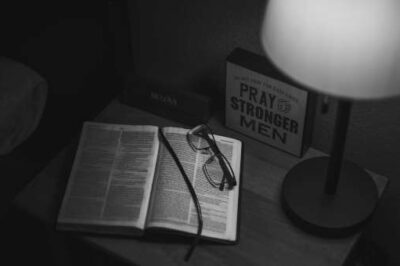Since Hurricane Sally hit our area back in September, I have been blessed to have two of my grandchildren living at my house (along with their parents). One of the advantages of having our small grandchildren living with us is that I have been able to watch as an observer many of the experiences I went through with my children when they were young.
One such experience has been my ability to watch my grandchildren look painfully at their parents when they were told they could not have [fill in the blank].
Those moments when my son and/or daughter-in-law seem, in the eyes of their children, to be horrible ogres whose sole purpose in life is to keep them from having any fun and sweet treats, when those sweet little children hear the word “no,” you can see in their eyes that they are questioning the love of their parents. After all, if you loved me, you would let me have [fill in the blank].
The reason that this is so meaningful to me isn’t simply because I get to watch my son be looked at by his children in the same way he looked at me when he was small. It is because it has provided me with plenty of opportunities to understand a little more about G-D’s love for us as our Father, and it provides continual reminders that sometimes G-D’s love doesn’t look or feel like love to us when we are on the receiving end.
There are many times when we see examples of G-D demonstrating His love toward men when the men on the receiving end of His love probably felt exactly as my grandchildren do. One such example that most are familiar with is found in John 2:12-16 (TLV):
After this Yeshua went down to Capernaum with His mother, brothers, and disciples, and they stayed there a few days. The Jewish feast of Passover was near, so Yeshua went up to Jerusalem. 14 In the Temple, He found the merchants selling oxen, sheep, and doves; also the moneychangers sitting there. Then He made a whip of cords and drove them all out of the Temple, both the sheep and oxen. He dumped out the coins of the moneychangers and overturned their tables. To those selling doves, He said, “Get these things out of here! Stop making My Father’s house a marketplace!”
Just think about this scene taking place as Yeshua weaves a whip of cords and proceeds to drive the money-changers out of the temple. Can you imagine the facial expressions of those being whipped and chased by Yeshua?
Let’s think a little deeper into this event. First, this event takes place just before Passover, when all Jews were commanded to travel to Jerusalem. We know this isn’t the first time Yeshua was at the temple. He would have visited the temple in Jerusalem at least three times a year every year. We also know that this wasn’t the first time merchants and money- changers were in the temple; this had become a regular practice of the second temple period.
So, why didn’t Yeshua make a whip on one of his earlier visits to the temple? What made this time different? I think the key to understanding why is found in verse 12. His disciples were with Him. The word “disciples” means “followers.” For all intents and purposes, Yeshua’s disciples were like His children. He was responsible for their well-being, especially spiritually. Yeshua now had people for whom He was responsible for in the same way my son has children for whom he is responsible.
Yeshua saw the situation taking place and responded in love for His disciples by acting in a way that from the outside could appear unloving, especially to those who were at the painful end of the whip. Even His disciples may have initially been taken back by Yeshua’s actions.
However, just as those times when my son tells his children no, Yeshua told His disciples no that day—and not only His disciples who were with Him, but all those who would become disciples in the future.
As much as we don’t like G-D’s chastisement, we must realize that it is a demonstration of His love and is just as much an outpouring of blessing as when He gives us things. Just as when we read about Yeshua making a whip and driving people out of the temple, we must see it as a demonstration of His love, as we read in Hebrews 12:6-7:
“‘because Adonai disciplines the one He loves and punishes every son He accepts.’ It is for discipline that you endure. God is treating you as sons—for what son does a father not discipline?” {eoa}
Rabbi Eric Tokajer has served the community of Brit Ahm Messianic Synagogue in Pensacola, Florida since 2006. In addition to serving at Brit Ahm, he also helped to establish six other Messianic synagogues along the United States, Gulf Coast. He is also a sought-after speaker for both national and international conferences and events, and has authored 12 books. In addition to his duties as a rabbi, he also serves on the board of several Messianic ministries and as the theology team facilitator for the Tree of Life Version Bible.
Read articles like this one and other Spirit-led content in our new platform, CHARISMA PLUS.








Leave a Comment
You must be logged in to post a comment.